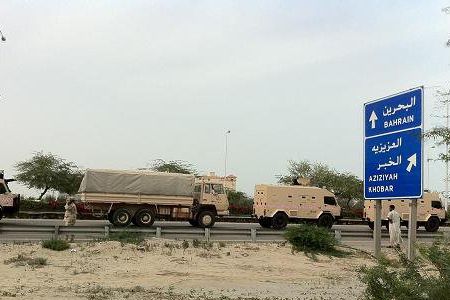 Jean-François Seznec writes for Foreign Policy magazine:
Jean-François Seznec writes for Foreign Policy magazine:
One thousand "lightly armed" Saudi troops and an unspecified number of troops from the United Arab Emirates entered Bahrain on the morning of March 14, in a bid to end the country's monthlong political crisis. They are reportedly heading for the town of Riffa, the stronghold of the ruling Khalifa family. The troops' task, apparently, is to protect the oil installations and basic infrastructure from the demonstrators.
The Arab intervention marks a dramatic escalation of Bahrain's political crisis, which has pitted the country's disgruntled Shiite majority against the Sunni ruling family -- and has also been exacerbated by quarrels between hard-liners and liberals within the Khalifa clan. The clashes between protesters and government forces worsened over the weekend, when the security services beat back demonstrators trying to block the highway to the capital of Manama's Financial Harbor. The protesters' disruption of the harbor, which was reportedly purchased by the conservative Prime Minister Khalifa bin Salman al-Khalifa for one dinar, was an important symbolic gesture by the opposition.
For the United States, the intervention is a slap in the face. On Saturday, March 12, U.S. Defense Secretary Robert Gates visited Bahrain, where he called for real reforms to the country's political system and criticized "baby steps," which he said would be insufficient to defuse the crisis. The Saudis were called in within a few hours of Gates's departure, however, showing their disdain for his efforts to reach a negotiated solution. By acting so soon after Gates's visit, Saudi Arabia has made the United States look at best irrelevant to events in Bahrain, and from the Shiite opposition's point of view, even complicit in the Saudi military intervention.